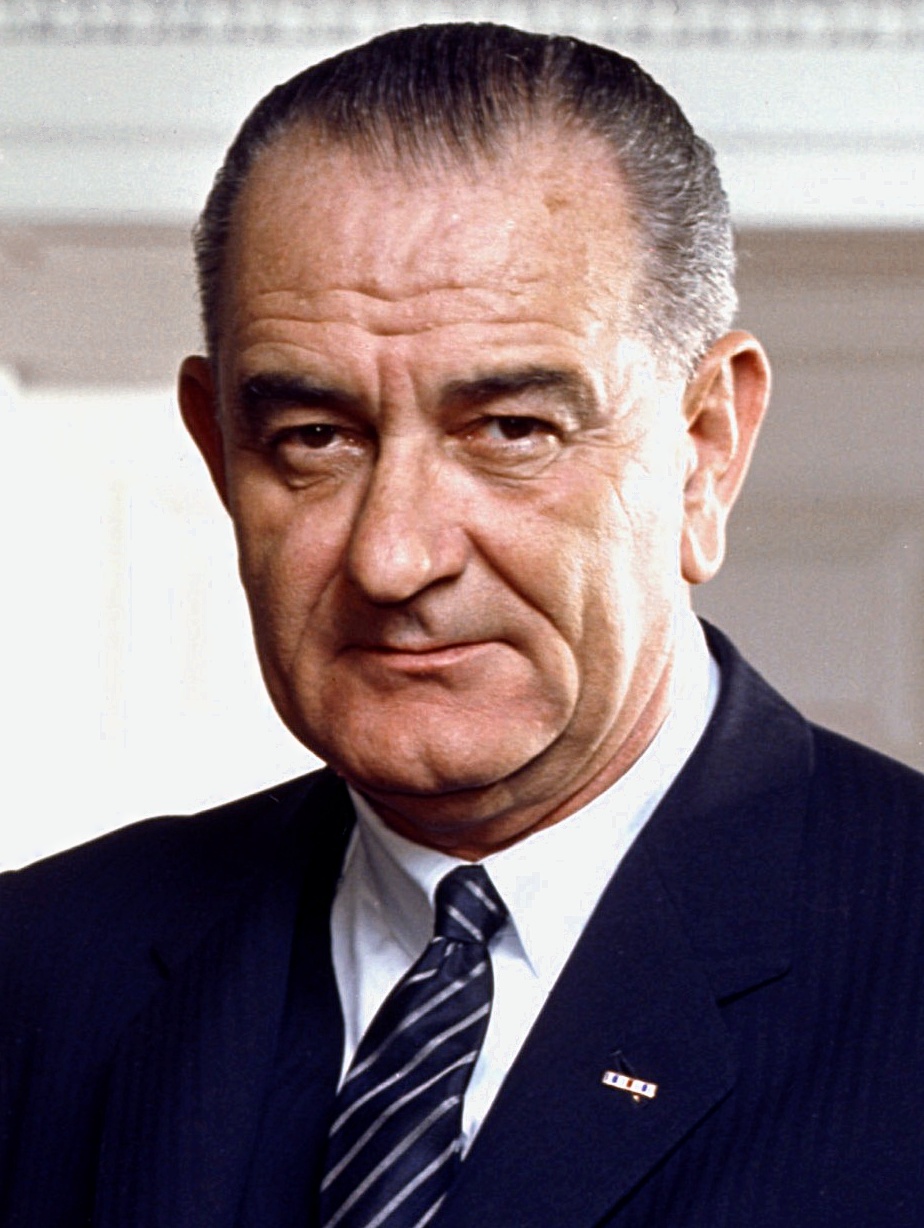gegen Ende seiner Amtszeit und vor dem Hintergrund des schleppend verlaufenden Vietnamkrieges; Der Spiegel: Ich lebe http://www.spiegel.de/spiegel/print/d-45849661.html, Heftsausgabe vom 20. Januar 1969
Zugeschrieben
Lyndon Baines Johnson Zitate und Sprüche
Lyndon Baines Johnson: Zitate auf Englisch
1960s, Inaugural address (1965)
1960s, The American Promise (1965)
News Conference (28 July 1965) http://www.presidency.ucsb.edu/ws/index.php?pid=27116.
1960s
1960s, State of the Union Address (1966)
1960s, State of the Union Address (1966)
1960s, Letter to Ho Chi Minh (1967)
1960s, State of the Union Address (1966)
As quoted in "What a Real President Was Like: To Lyndon Johnson, the Great Society Meant Hope and Dignity" http://pqasb.pqarchiver.com/washingtonpost/doc/307079109.html?FMT=ABS&FMTS=ABS:FT&date=Nov+13%2C+1988&author=Moyers%2C+Bill+D&desc=What+a+Real+President+Was+Like%3B+To+Lyndon+Johnson%2C+the+Great+Society+Meant+Hope+and+Dignity, by Bill Moyers, The Washington Post (13 November 1988).
Attributed
1960s, Civil Rights Bill signing speech (1964)
“A people divided over the right to vote can never build a Nation united.”
1960s, Special message to Congress on the right to vote (1965)
1960s, Special message to Congress on the right to vote (1965)
1960s, The American Promise (1965)
1960s, State of the Union Address (1966)
1960s, State of the Union Address (1966)
Remarks at the University of Michigan, Ann Arbor (May 22, 1964). Public Papers of the Presidents of the United States: Lyndon B. Johnson, 1963–64, book 1, p. 704.
1960s
1960s, State of the Union Address (1966)
1960s, State of the Union Address (1966)
1960s, State of the Union Address (1966)
1960s, Letter to Ho Chi Minh (1967)
1960s, Voting Rights Act signing speech (1965)
1960s, Civil Rights Bill signing speech (1964)
“The purposeful many need not and will not bow to the willful few.”
1960s, Special message to Congress on the right to vote (1965)
1960s, Special message to Congress on the right to vote (1965)
“And I just want to tell you this — we're in favor of a lot of things and we're against mighty few.”
Campaign statement (1964), as quoted in The Making of the President, 1964 (1966) by T. H. White, p. 413.
1960s
1960s, Letter to Ho Chi Minh (1967)
1960s, Inaugural address (1965)
1960s, Inaugural address (1965)
1960s, Voting Rights Act signing speech (1965)
